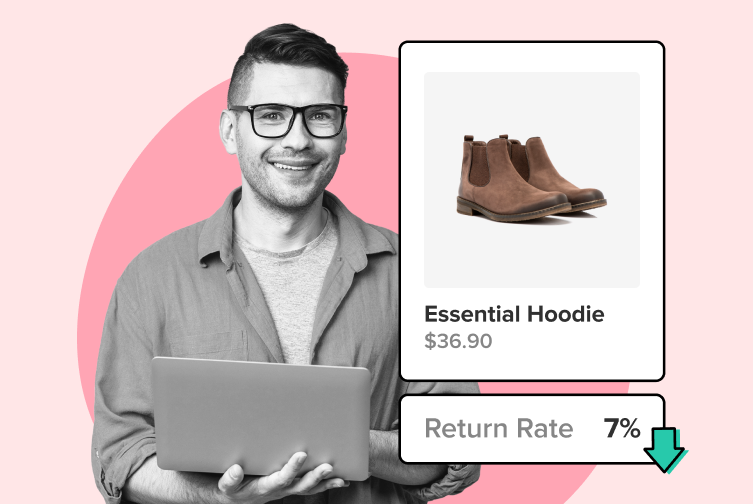
How to Analyze Returns Data to Reduce Return Rates
Discover how to analyze returns data to reduce return rates and boost profitability. Learn effective strategies to enhance your business’s performance.
Boost customer experience and reduce support tickets
Realtime order and shipment tracking
Proactive order and shipping notifications
Predictive pre-purchase estimated delivery dates
Self-Serivce branded order tracking
Effortless experience delivered
Make returns profitable and delight customers
Flexibility to define any return destinations & conditions
Simplify returns for your customers and team
Incentivize exchanges over returns
Returns management made easy for your team
Understand why your customers are returning
Unify the online and the in-store experience
Hassle-free pickup experience for customers
In-Store Dashboard to keep operations streamlined
In-Store and Online orders unified
Drive foot-traffic to your stores
Boost customer experience and reduce support tickets
Realtime order and shipment tracking
Proactive order and shipping notifications
AI-Enhanced Discounted Labels
Predictive pre-purchase estimated delivery dates
Self-Serivce branded order tracking
Effortless experience delivered
Make returns profitable and delight customers
Flexibility to define any return destinations & conditions
Simplify returns for your customers and team
Incentivize exchanges over returns
Returns management made easy for your team
Equip your team for precise return checks.
Understand why your customers are returning
Unify the online and the in-store experience
Hassle-free pickup experience for customers
In-Store Dashboard to keep operations streamlined
In-Store and Online orders unified
Drive foot-traffic to your stores
Find the answer to all your questions
Explore the most comon questions about WeSupply
Calculate the ROI that WeSupply can bring you
Request a no strings attached review of your current shopping experience and missed conversion opportunities
Take a step by step trip through our functionality to see how we can improve your ecommerce processes.
Read actionable articles on how to optimize your post-purchase experience and decrease support tickets
Get inspired by stories of how our customers implemented an effortless post-purchase experience
A Deep Dive into Top Companies' Order Tracking & Returns Strategy
Wondering if WeSupply is a good fit for you? Read through our use cases to see how we can help you increase conversion & improve CX!
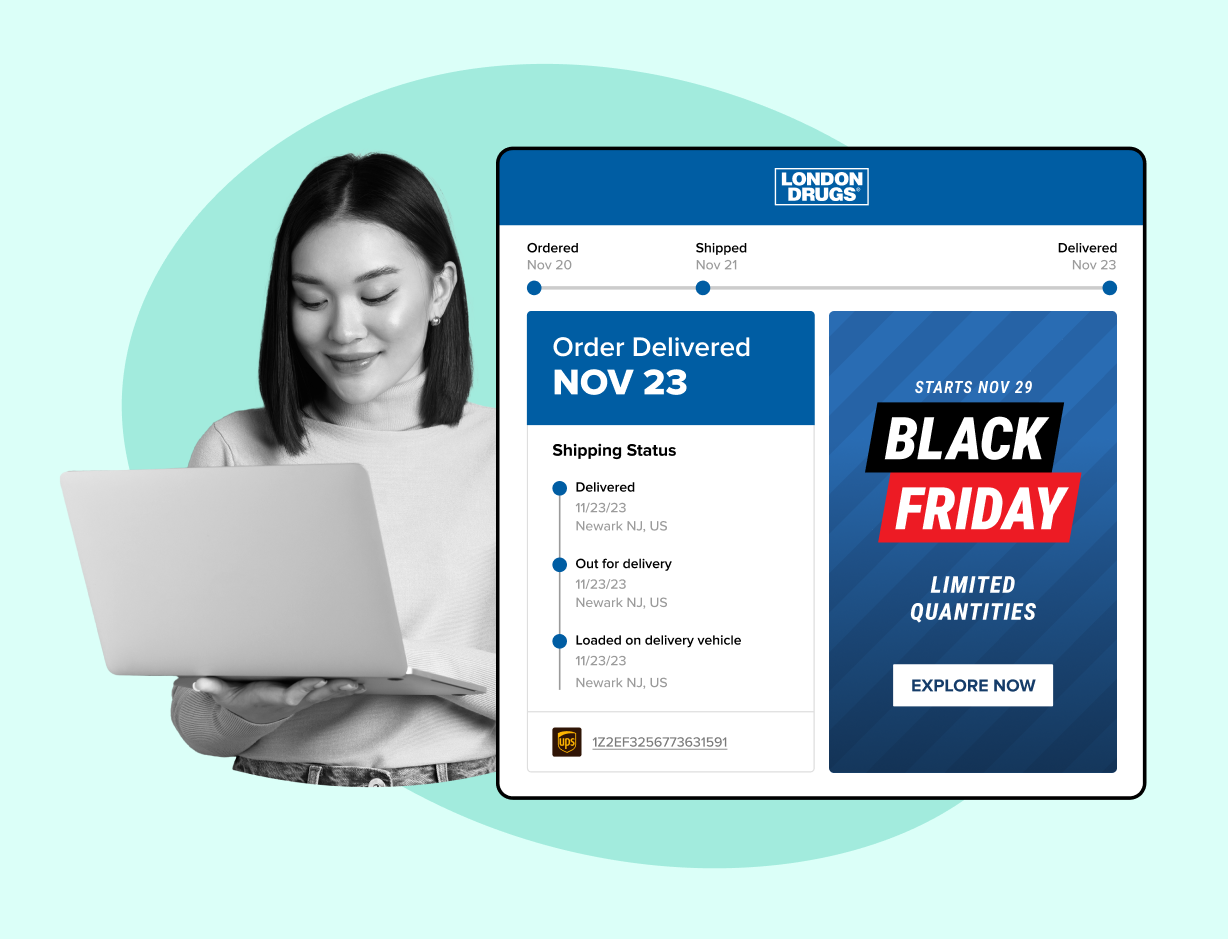
In ecommerce, the real journey doesn’t end at checkout it begins. Many businesses focus their time, money, and creativity on getting customers to make their first purchase, but often neglect what happens afterward. This is a costly oversight.
The post-purchase phase is a critical part of the overall customer journey in ecommerce. Understanding and optimizing each stage of the customer journey allows brands to monitor engagement, improve retention, and make timely interventions that drive long-term success.
Post-purchase interactions are where loyalty is built, repeat purchases are encouraged, and customers turn into long-term brand advocates. Done right, a post-purchase strategy transforms one-time buyers into regulars who not only come back but also bring friends along. In an increasingly competitive market, this is how brands maximize revenue retention the art of holding onto more of what you earn and increasing customer lifetime value (CLV).
In this article, we’ll break down how to design a post-purchase strategy that boosts retention, strengthens loyalty, and keeps your revenue growing.
Ecommerce retention refers to your ability to keep existing customers engaged and purchasing over time. While the average ecommerce retention rate hovers between 20% and 40%, subscription based ecommerce businesses often achieve higher retention rates, sometimes above 50%. The average customer retention rate in ecommerce varies by industry and business model, but a good customer retention rate is generally considered to be above 30%, with industry benchmarks helping businesses evaluate their own performance. Ecommerce typically ranges for retention rates depend on the business model, with subscription-based models outperforming one-off purchase models. Retention rate for ecommerce and ecommerce customer retention rate are key metrics for long-term success, and tracking average retention rates and average retention rate is essential for evaluating business performance. Customer retention stats provide valuable insights to measure and compare performance across ecommerce businesses. Why does this matter? Because returning customers are not only more likely to buy again they often spend more with each purchase.
Retention directly impacts your bottom line. A loyal customer base means reduced dependency on expensive acquisition campaigns and a steadier stream of revenue. In fact, studies consistently show that acquiring a new customer can cost 5–25 times more than retaining an existing one. That’s money better spent on delighting the people who already trust you.
Think of post-purchase as the bridge between a single transaction and a long-term relationship. Without that bridge, customers can drift away and forget you. With it, they have a reason to come back.
A strong post-purchase experience makes customers feel supported, appreciated, and connected to your brand. Creating a positive customer experience during this phase is essential for encouraging repeat business and building loyalty. From personalized thank-you notes and loyalty rewards to timely shipping updates and feedback requests, every touchpoint matters. The goal is to create such a positive and memorable experience that your customers think, “I want to buy from them again.”
There’s no denying the thrill of acquiring customers. Attracting new buyers means growth potential, fresh market reach, and often a boost in brand awareness. However, acquiring customers can be challenging and costly. But if your business is a leaky bucket losing customers as fast as you gain them you’ll spend more money than you earn trying to refill it.
Retention is more cost-effective and directly impacts CLV. Retaining customers and focusing on retaining existing customers can significantly increase profitability, as it is generally less expensive than acquiring new ones. Loyal customers also tend to convert at higher rates, try new products, and spread the word about your brand. That’s why retention strategies should sit side-by-side with acquisition tactics in your marketing plan. It’s not an either/or situation it’s about finding the right balance.
Personalization is no longer optional it’s the language of customer loyalty. Consumers are bombarded with generic marketing, but they notice when a brand tailors communication to their preferences, history, and needs.
Effective personalization depends on collecting and analyzing customer data to tailor communications that resonate with each individual.
For example, after a purchase, you could send:
Targeted product recommendations based on their previous order.
Special-occasion offers like birthday discounts.
Segmented loyalty rewards for high-spending or frequent customers.
By making customers feel understood and valued, personalization increases the emotional connection to your brand an essential ingredient for retention. Personalization also drives higher customer engagement, leading to improved retention and more repeat purchases.
Your post-purchase communication should do more than confirm an order it should reassure, inform, and engage. Here’s how to make it effective:
Immediate order confirmation – Send a friendly, clear confirmation email within minutes of purchase.
Shipping updates – Provide tracking numbers and estimated delivery dates. Transparency builds trust.
Delivery notifications – Let customers know their order has arrived and thank them again.
Follow-up engagement – Share tips on using the product, provide clear product instructions and usage tips to support customer education, invite them to leave a review, or showcase related items they might love.
Setting and meeting customer expectations through transparent updates at every stage is essential for building trust and improving retention.
Brands can provide proactive support by reaching out to customers before issues arise, using multi-channel communication platforms like SMS, WhatsApp, and web chat to monitor interactions and address needs early.
Regularly monitoring customer service interactions helps identify and resolve potential issues before they impact satisfaction, further enhancing the post-purchase experience.
When customers always know what’s happening with their order and feel acknowledged afterward, their confidence in your brand grows.
Combat inconvenience with proactivity & self service
Book a quick call with our experts to see how WeSupply can help you make returns easy for your customers with a beautiful, self-service solution that makes their experience easier while also providing new ways to lower costs and earn back revenue.
Exclusivity makes customers feel special and special treatment encourages loyalty. Offer perks that make them feel like they’re part of an inner circle:
Early access to new products or sales.
Members-only events or product launches.
Special rewards for referrals or milestone purchases.
Exclusivity taps into the human desire to be “in the know,” and it often inspires customers to share their experiences organically promoting your brand.
A customer loyalty program is one of the most straightforward and effective tools to improve retention. Done well, a customer loyalty program not only rewards customers but also keeps them engaged with your brand.
Effective loyalty programs:
Offer points, discounts, or freebies for repeat purchases.
Provide tiered rewards that encourage continued engagement.
Include non-purchase activities like leaving reviews or referring friends.
Loyalty program members are typically more engaged and spend more than non-members, making them valuable for your business. Over time, a well-designed loyalty program helps build brand loyalty by encouraging repeat purchases and fostering a deeper connection between customers and your brand.
Remember, the best loyalty programs are simple to understand, easy to use, and genuinely valuable to the customer.
Even the best marketing can’t save a brand that fails on customer satisfaction. Your products must meet expectations, your service must resolve issues quickly, and your support must be easy to reach.
Measure satisfaction through:
Surveys (like post-purchase NPS).
Product reviews and star ratings.
Direct feedback from support interactions.
Maintaining strong customer relationships is essential for gathering feedback, improving customer experience, and increasing retention.
When complaints arise, act quickly and proactively. Sometimes, how you handle a problem matters more than the problem itself turning a negative experience into a reason for loyalty.
If your product is something customers buy regularly like consumables, apparel, or beauty products make reordering as frictionless as possible. Consider:
Subscriptions with flexible options.
One-click reordering from order history.
Automated reminders when it’s time to restock.
Tracking your repeat purchase rate is essential, as it measures how often customers return to buy again. Increasing the repeat purchase rate is a key goal of post-purchase strategies, reflecting strong customer loyalty and effective retention efforts.
Reducing the effort required to make another purchase keeps the buying momentum going.
Even the most well-intentioned ecommerce businesses can stumble when it comes to customer retention. One of the most common mistakes is treating every customer the same, rather than personalizing the experience. Today’s shoppers expect brands to recognize their preferences and purchase history when they don’t, it can lead to a lackluster customer experience and lower customer retention rates.
Another frequent misstep is neglecting the importance of exceptional customer service. Every customer service interaction is an opportunity to build trust and loyalty, but slow responses or unresolved issues can quickly erode customer satisfaction and drive even loyal customers away. Remember, a single negative experience can undo months of positive engagement.
Many ecommerce businesses also overlook the value of customer feedback. Failing to collect and act on feedback means missing out on insights that could improve your products, services, and overall retention strategy. Without this input, it’s easy to lose touch with what your customers actually want, which can hurt your retention rates and ultimately reduce customer lifetime value.
Finally, some businesses focus too heavily on acquiring new customers, neglecting the existing customer base that is more likely to make repeat purchases and contribute to long-term revenue. This imbalance can lead to higher acquisition costs and a lower average customer lifetime.
By recognizing and avoiding these common mistakes, ecommerce businesses can strengthen their retention efforts, boost customer loyalty, and increase the customer lifetime value that drives sustainable growth.
To improve customer retention rates and foster long-term customer loyalty, ecommerce businesses need the right set of tools. A robust customer relationship management (CRM) system is essential for tracking customer interactions, segmenting your audience, and delivering personalized service that keeps customers coming back. With a CRM, you can better understand your customers’ needs and tailor your retention strategies accordingly, increasing both customer lifetime value and satisfaction.
Loyalty programs are another powerful tool for encouraging repeat purchases and rewarding loyal customers. Platforms that support loyalty program management make it easy to set up point systems, tiered rewards, and exclusive offers that motivate customers to engage more frequently with your brand.
Email marketing automation tools, such as Klaviyo, allow you to send targeted, personalized messages that nurture relationships and prompt repeat purchases. Automated campaigns can be triggered by customer behavior, ensuring that your communication is always relevant and timely.
Social media management tools also play a key role in customer retention. By actively engaging with your audience on platforms like Instagram and Facebook, you can provide exceptional customer service, respond quickly to inquiries, and build a sense of community around your brand.
Popular solutions like Shopify, Gorgias, and Klaviyo offer integrated features for customer segmentation, email automation, and support management, making it easier to streamline your retention efforts. By leveraging these tools, ecommerce businesses can deliver a superior customer experience, increase customer lifetime, and ultimately boost their retention rates for long-term success.
Customer retention metrics and retention metrics are essential for evaluating the performance of your ecommerce store. You can’t improve what you don’t measure. Track key metrics like:
Customer Retention Rate (CRR) – To calculate customer retention rate, use the formula: [(number of customers at end of period – new customers acquired) ÷ number of customers at start of period] × 100.
Customer Lifetime Value (CLV) – Average purchase value × purchase frequency × customer lifespan.
Customer Churn Rate – The percentage of customers who stop buying over a given period.
Average Order Value (AOV) and Average Order – Monitoring average order value and average order helps you understand customer spending patterns and improve retention analysis.
Tracking these customer retention metrics allows ecommerce stores to make data driven decisions, optimize retention strategies, and boost profitability. Ecommerce stores should regularly monitor these metrics to identify opportunities for growth and enhance customer loyalty.
These metrics reveal where you’re succeeding and where you need to refine your post-purchase strategy.
To maximize revenue retention, your brand must live in customers’ minds even when they’re not actively shopping. This can include:
Sending educational or entertaining content related to their purchase.
Hosting social media challenges or community groups.
Offering loyalty updates with point balances and rewards.
Maintaining customer engagement within your online store environment is crucial ongoing content and support help foster loyalty and satisfaction.
Engaging customers between purchases keeps the relationship warm, so they’re more likely to return.
When all these elements personalization, exclusivity, communication, loyalty programs, and customer satisfaction work together, the result is compounding growth.
Customers buy again.
They spend more per order.
They refer others.
They stay longer, increasing CLV.
Retention marketing and effective retention marketing strategies drive this compounding effect by building customer loyalty, increasing lifetime value, and reducing churn, which are essential for sustained revenue growth in eCommerce.
Retention fuels itself when customers consistently have positive post-purchase experiences.
Simplify Returns for Your Customers and Support Team
Book a quick call with our experts to see how WeSupply can help you: simplify the Return experience with just a few clicks, reduce customer service calls and manual processing, notify your customer about their refund, automate returns and reduce user error.
Building a winning ecommerce revenue retention post-purchase strategy means going beyond delivering an order, it’s about turning every interaction after checkout into a chance to keep customers engaged, satisfied, and coming back for more. WeSupply equips online retailers with a 360° Post-Purchase Solution that makes shipping and returns profitable while protecting revenue and enhancing customer loyalty.
With WeSupply, you can:
Spot and resolve delays with real-time shipment visibility to avoid negative reviews, increase satisfaction by 48%, and proactively update customers via email and SMS notifications that integrate with Klaviyo, Attentive, and Listrak.
Turn tracking into a sales channel with upsells, popular product recommendations, and promotions customers check tracking pages an average of 4.6 times per order, boosting engagement and lifetime value by 12%.
Set accurate expectations using delivery promise dates on PDP, cart, and checkout pages boost conversions by up to 26%, reduce cart abandonment, and keep customers informed to reduce call center costs by 62%.
Offer fully automated self-service returns & exchanges with return routing, green returns, and shipment tracking cut return handling time by 80% while retaining 48% of revenue through exchanges and upselling higher-value items.
Inspect returned products & warranties faster, reducing inspection time by 38%, preventing landfill waste, and identifying trends to improve product quality and reduce future returns.
Protect profits with shipping protection, returns protection keep 100% of revenue from protection offerings, cover return label and software costs, and make returns profitable.
Prevent fraud & abuse by auto-identifying policy violators, instantly resolving return scams, and blocking refunds on non-returnable items.
Provide flexible fulfillment options like BOPIS (Buy Online, Pickup In-Store), curbside pickup management, and POS returns cut shipping costs, increase store traffic, and lower cart abandonment.
Simplify warranty management with warranty registration, automated claims processing, recall management, and upsell opportunities for accessories and extended warranties to boost revenue.
Maximize post-purchase revenue by recapturing lost sales, upselling during order updates, and personalizing recommendations in notifications, achieving average open rates of 66% and CTRs of 21%.
From reducing operational overhead to capturing more sales opportunities, WeSupply turns post-purchase into your most profitable growth channel helping you keep customers happy, loyal, and buying again. See how WeSupply turns every post-purchase moment into profit—book your demo today!
Building a post-purchase strategy that maximizes revenue retention means transforming every step after checkout into a profit-driving moment.
With WeSupply’s 360° Post-Purchase Solution, you can deliver branded tracking pages, proactive shipment notifications, accurate delivery promise dates, and real-time delay alerts that keep customers informed and engaged. Automate returns and exchanges to recapture up to 48% of revenue, protect profits with shipping and returns protection, prevent fraud with intelligent detection, and streamline fulfillment through BOPIS and curbside pickup. Simplify warranty management with automated claims, product registration, and recall tools, while using tracking pages and updates to upsell and increase lifetime value.
By combining retention-focused experiences with operational efficiency, WeSupply helps you keep customers loyal, reduce costs, and turn every post-purchase touchpoint into lasting revenue growth.
1. Why is customer retention important for ecommerce revenue?
Retention increases lifetime value, reduces acquisition costs, and drives repeat purchases. Loyal customers spend more and refer others, creating compounding revenue growth over time.
2. How can personalization improve ecommerce retention?
Personalized product recommendations, offers, and messages make customers feel valued, increase engagement, and encourage repeat purchases, strengthening brand loyalty.
3. What role does communication play in post-purchase retention?
Timely order updates, delivery notifications, and follow-up messages build trust, reduce uncertainty, and improve the overall customer experience, encouraging future purchases.
4. How does WeSupply improve post-purchase customer satisfaction?
WeSupply offers branded tracking pages, real-time shipment updates, and proactive delay notifications, reducing inquiries and improving delivery transparency.
5. Can WeSupply help reduce return-related revenue loss?
Yes. WeSupply automates returns and exchanges, retains up to 48% of revenue, and prevents fraud with intelligent policy enforcement.
6. How does WeSupply turn tracking into a sales channel?
WeSupply’s tracking pages display upsells, recommendations, and promotions, boosting engagement and increasing customer lifetime value by up to 12%.
7. Does WeSupply have an Official Shopify App?
Yes. WeSupply has an Official Shopify App. You can download it and start integrating with your Shopify Store.
8. Does WeSupply have an official Magento extension?
Yes, WeSupply has an official extension for Magento. The WeSupply x Magento integration allows for automating order tracking experiences, reducing customer inquiries, automating shipping email and SMS notifications, and providing a fully branded order tracking experience.
9. Does WeSupply have an official BigCommerce App?
Yes, WeSupply has an official BigCommerce App. You can integrate WeSupply with your BigCommerce store to improve your post-purchase customer experience.
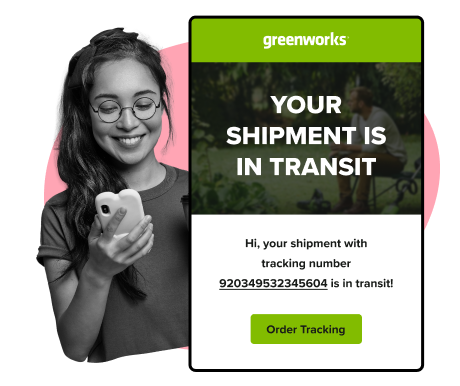
Learn How To Create Successful Post Purchase Email Campaigns
Build an effective post-purchase email flow that helps you increase customer satisfaction and drive revenue growth!

Discover how to analyze returns data to reduce return rates and boost profitability. Learn effective strategies to enhance your business’s performance.
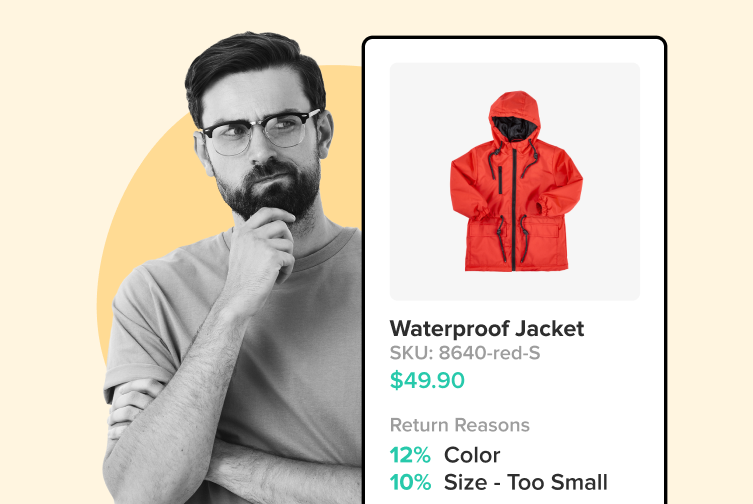
Discover effective methods for analyzing customer feedback post-purchase. Enhance satisfaction and drive improvement!
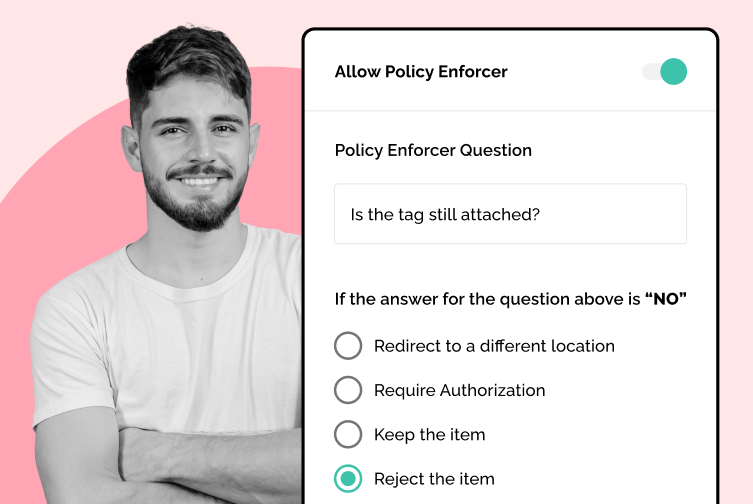
Learn effective strategies to combat wardrobing and tag switching in fashion ecommerce. Protect your business and enhance customer trust. Read more now!
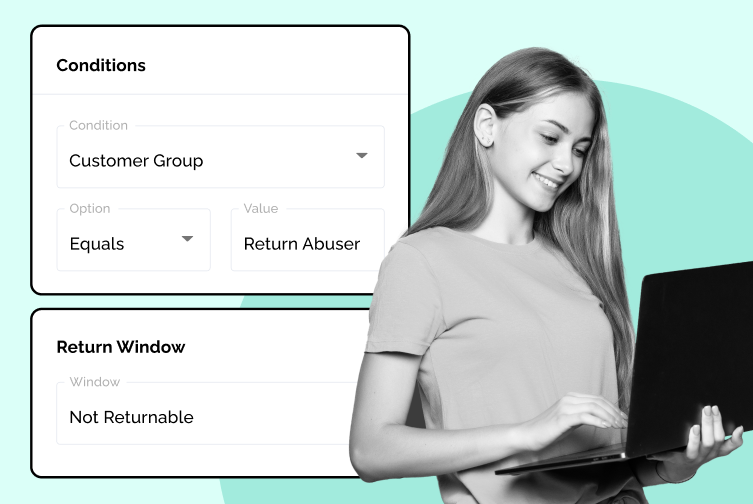
Learn how to manage BOGO returns effectively while ensuring customers aren’t charged for the free item. Practical solutions!
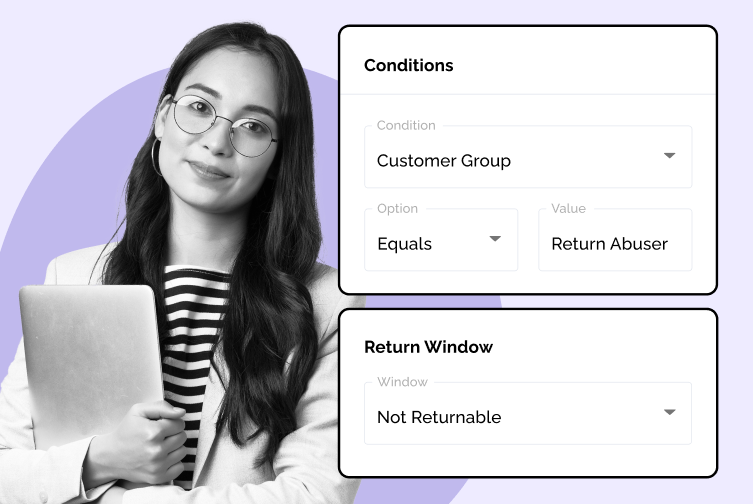
Explore how automation and data can enhance your shipping strategy. Discover best practices to stay competitive and efficient. Read the article now!
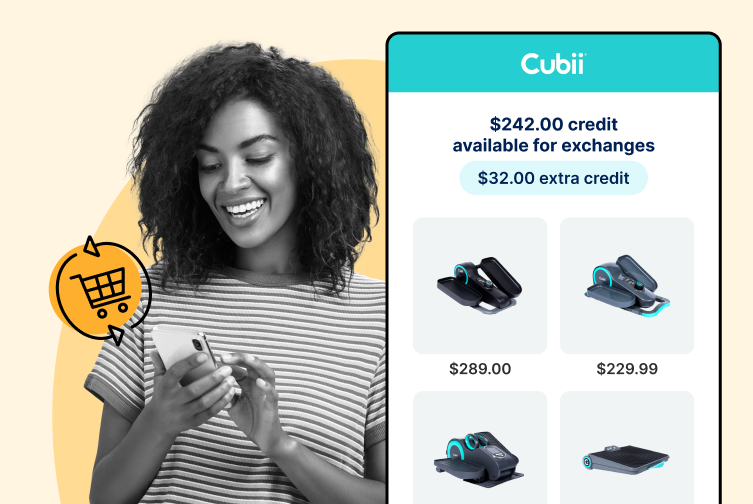
Discover effective strategies to prevent return promo abuse with smart logic. Enhance your business’s integrity!
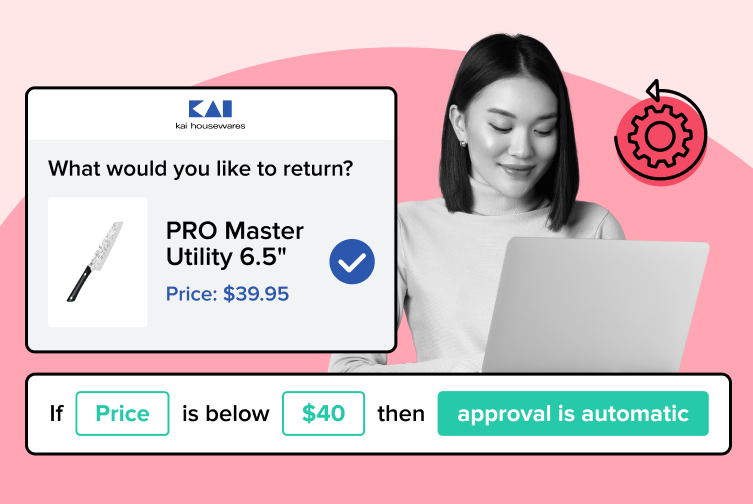
Learn how to effectively manage promo bundle returns while protecting your revenue. Discover practical tips to streamline your process!
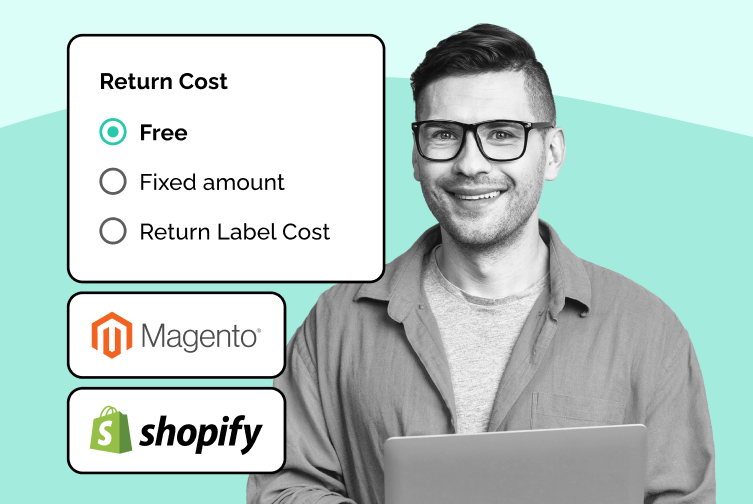
Learn how to manage BOGO returns effectively while ensuring customers aren’t charged for the free item. Practical solutions!
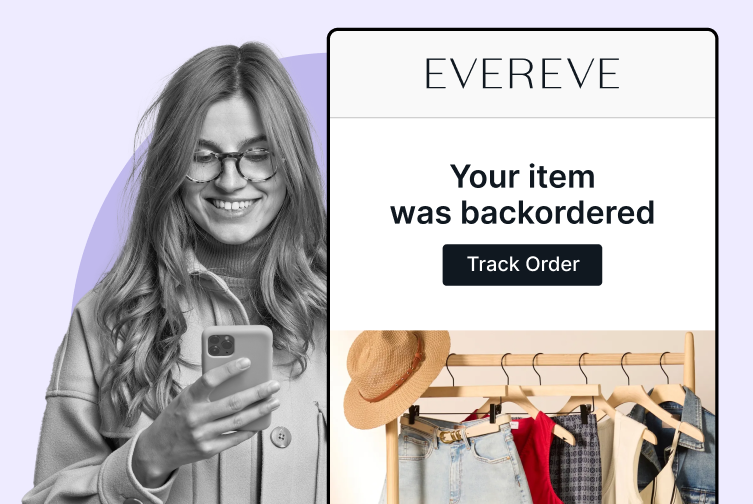
Explore how automation and data can enhance your shipping strategy. Discover best practices to stay competitive and efficient. Read the article now!